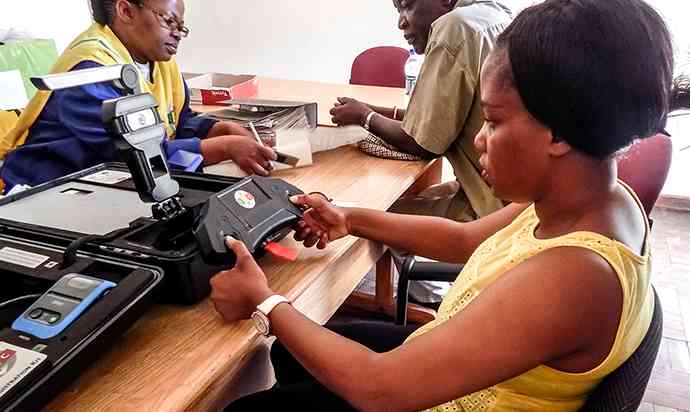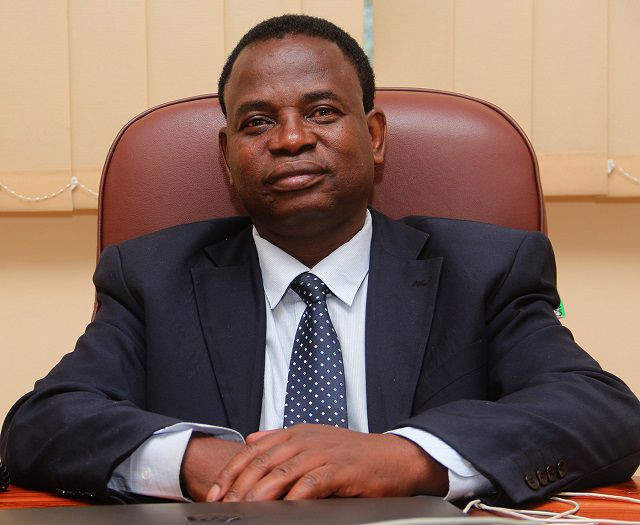
THE low voter registration ahead of general elections expected later this year is a clear case of the political environment being littered with landmines and violence directed at any dissenting voices. This is enough evidence that the Zanu PF administration has not reformed from its old violent philosophical position.
Zanu PF under President Emmerson Mnangagwa believe that they are the custodians of independence in Zimbabwe and anyone opposing them is a traitor or working for the erstwhile colonisers in the West. Zanu PF has used this line of attack to silence its critics and brainwash the rural electorate.
It is clear that the Zimbabwe Electoral Commission (Zec) did not do its work right. If it was in a country where logic, responsibility and obligation is respected or prevails, the whole Zec commission would have resigned over poor performance.
The fact that despite this poor performance Zec has continued and will be presiding over the coming plebiscite speaks volumes of its connection to the establishment. Low voter registration will play very well to Zanu PF’s advantage as it will enable the ruling party to play around with numbers of those who will not have voted to ensure victory.
It is important to note that the government, through Zec, has an obligation to create a conducive environment for citizens to freely participate in elections. Such an obligation can only be administered through goodwill, safety, rule of law and freedom of association — all of which are far-fetched in the current Zimbabwean political environment.
In one of my many visits to Zimbabwe I observed with pain how mobile voter registration — was being conducted in rural settings. Zec expected rural folks to know when they would be coming to their areas by merely announcing on radio, television, in government newspapers and telling local schoolchildren. In some cases, they do nothing to alert the people to come and register.
This is a clear characteristic of incompetence of the government in communicating with communities and citizens. In the current economic turmoil in Zimbabwe, how many rural families have a television set, buy and read a newspaper or have a radio set? Of cause very few can afford this luxury while the rest will not. This is a deliberate attempt by the government to disenfranchise the rural citizens from fully participating in the elections.
All this communication debacle can be seen through the lenses of oppressive measures that have been implemented by the government to prevent free flow of information. Among them are the notorious and colonial-like Acts of Parliament which included among others Broadcasting Services Act (BSA) (2001), the Zimbabwe Broadcasting Corporation (Commercialisation) Act (2003),[8] the now-repealedAccess to Information and Protection of Privacy Act (Aippa) (2002), the Public Order and Security Act (2002) (also repealed).
- Corruption Watch: Get scared, 2023 is coming
- Corruption Watch: Get scared, 2023 is coming
- Letters: Ensuring Africa’s food security through availability of quality seeds
- Is military's involvement in politics compatible with democracy?
Keep Reading
These statutes have continued over the years to be a hindrance to full emancipation of citizens in general and rural communities in particular. There is need for goodwill from the government to free the airwaves and enable rural communities to operate local radio stations which can cover local development and educational issues.
This can only be facilitated by a government which has the community at the centre of its development plan, not one which sees the community and citizens as enemies of the State. It is sad that Zimbabwe has been free from colonial oppression for more than 40 years, but has nothing to show except for those colonial traits that have continued to haunt the nation.
Moreso, it is sad to hear people like former Cabinet minister Jonathan Moyo blaming the opposition for the poor registration of voters in Zimbabwe. One would ask Moyo what he has done as a politician in Zimbabwe to make sure that citizens are free to participate in elections without fear of reprisal. The answer to this big question is not going to be kind to this professor who is a political flip flopper.
In 1993, Moyo was a programme director for the Ford Foundation in Nairobi. He departed under unclear circumstances after allegations that he had embezzled US$88 000 from the organisation. It was not until 2018 that Moyo was still under indictment in Kenya for the alleged embezzlement of funds. In January 1998, he moved to South Africa, at the University of Witwatersrand (WITS) to work on a project titled: The Future of the African Elite sponsored by the W K Kellogg Foundation. WITS later claimed the academically-gifted Zimbabwean professor had absconded with part of a 100-million-rand research grant for the project.
Moyo then emerged on the Zimbabwe political scene hand in glove with Zanu PF, a political party that he had denigrated for poor administration during his academic lifetime.
He was appointed spokesman for Zanu PF and subsequently became the Minister of Information in 2000 following elections where the then main opposition party the Movement for Democratic Change (MDC) had stunned Zanu PF by grabbing a good number of seats in Parliament.
Moyo described the elections as a “wake-up call” and a “reality check” for Zanu PF. Having been vested with the powers to spread heresy and curtail freedom of information and association as the Minister of Information, Moyo started what can be described as forays into the “media and society”. During his 2000 to 2005 ministerial tenure, he crafted and defended diabolic pieces of legislation mixed with a high colonial overtone.
Alongside his political accomplice Patrick Chinamasa, they crafted the Broadcasting Services Act (BSA) (2001), the Zimbabwe Broadcasting Corporation (Commercialisation) Act (2003),[8] the Access to Information and Protection of Privacy Act (AIPPA) (2002), and the Public Order and Security Act (2002).
This led to widespread criticism that Moyo was attacking freedom of speech and association through Acts which were not far from colonialism and apartheid pieces of legislation.
When Moyo and Chinamasa brought AIPPA to Parliament, the chairperson of the Parliamentary Legal Committee then, Eddison Zvobgo, the outspoken Harvard University-educated lawyer from Masvingo said: “I can say without equivocation that this Bill, in its original form, was the most calculated and determined assault on our liberties guaranteed by the Constitution, in the 20 years I served as Cabinet minister.”
This never deterred Moyo, the University of California-educated professor from Tsholotsho, whose main objective was to wipe out the opposition and the independent Press from the face of Zimbabwe.
In October 2006, Moaletsi Mbeki, younger brother of former South African President Thabo Mbeki, and Witwatersrand University separately applied for an order to have Moyo jailed the next time he visited South Africa. However, the professor was too big to be a victim of these “low level challenges” while captaining the Zanu PF loose cannon.
Moyo boasted with pleasure and satisfaction when Chief Justice Gubbay resigned after being threatened by Joseph Chinotimba and the war veterans who had been let loose by Zanu PF to chaotically occupy productive land and destroyed the capacity of Zimbabwe to produce food. When the Daily News was shut down, Moyo said: “The Daily News is a victim of the rule of law which it had been preaching since 1999.”
It is a joke that Moyo can open his mouth to blame the opposition in light of his hand which destroyed the cradle of hope for a better Zimbabwe that had remained. He is now playing his usual antics of flip flopping to entice Zanu PF to call him back to the paradise of looting. Citizens and opposition political parties should be resolute and careful with whom they dine with or take counsel from. Beware of wolves who come in sheep skins to devour the flock.
The struggle for freedom in Zimbabwe will never be supported by the oppressors or those enjoying the fruits of the status quo. It is the obligation of the Zimbabwe government to educate and register citizens to take part in free and fair elections. Likewise, the citizens and opposition political parties can always compliment the statutory government obligations through educating and encouraging citizens to register for voting. Brothers and sisters let us meet again next week on this platform.
Mathew Nyashanu is a senior lecturer in Public Health and admissions tutor for the MA in Public Health. He is a Zimbabwean academic based in the institute of Health and Allied Professions at Nottingham Trent University. He writes here in his personal capacity.










